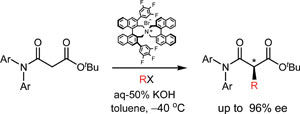BASF with new class of enzymes for production of chiral intermediates
Advertisement
BASF has developed a new class of enzymes that can be utilized for the industrial production of chiral intermediates: these specifically modified biocatalysts, which the companies has patented, are called enoate reductases. The asymmetric bioreactions catalyzed by enoate reductases take place at low temperatures and standard pressure and, by being highly selective, yield particularly high-quality products. According to the company, this allows a very efficient process for producing chemically sophisti-cated chiral molecules of outstanding optical purity. Examples include esters and aldehydes, which serve as starting materials in the pro-duction of active pharmaceutical and agrochemical ingredients.
Enoate reductases complement BASF's portfolio of enzymes, to date comprised of dehydrogenases, nitrilases and lipases. They are ob-tained from various organisms, for example yeasts like beer yeast, and from plants like tomato and tobacco.
Most read news
Other news from the department research and development

Get the chemical industry in your inbox
By submitting this form you agree that LUMITOS AG will send you the newsletter(s) selected above by email. Your data will not be passed on to third parties. Your data will be stored and processed in accordance with our data protection regulations. LUMITOS may contact you by email for the purpose of advertising or market and opinion surveys. You can revoke your consent at any time without giving reasons to LUMITOS AG, Ernst-Augustin-Str. 2, 12489 Berlin, Germany or by e-mail at revoke@lumitos.com with effect for the future. In addition, each email contains a link to unsubscribe from the corresponding newsletter.
































































